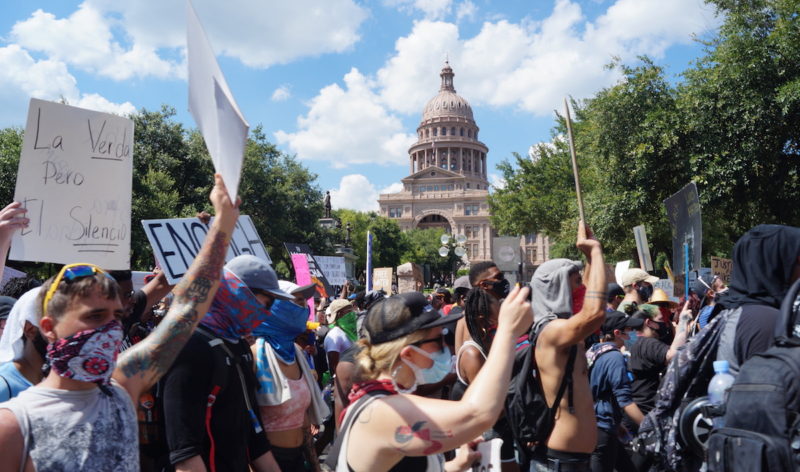Law enforcement officers in Texas will not be allowed to use neck restraints while making an arrest under a bill that cleared both chambers of the Texas Legislature this week.
SB 69 will become law September 1, 2021, unless vetoed by the governor. The reform measure comes after national protests over the death of George Floyd in Minneapolis.
Floyd, a Houston native, died after a police officer kneeled on his neck and back for 9 minutes and 29 seconds during an attempted arrest for using a counterfeit $20 bill.
That officer, Derek Chauvin, recently was convicted by a jury of second-degree unintentional murder and manslaughter, though he is appealing the conviction.
The new Texas law says, “A peace officer may not intentionally use a choke hold, carotid artery hold, or similar neck restraint in searching or arresting a person unless the restraint is necessary to prevent serious bodily injury to or the death of an officer or another person.”
The provision will become Article 2.33 of the Code of Criminal Procedure.
Another bill that cleared both chambers of the legislature establishes a “duty to intervene” if a police officer sees another officer using excessive force.
SB 68 requires officers to intervene if the amount of force “exceeds that which is reasonable under the circumstances” and isn’t needed to make an arrest. The officer must make a detailed report of the incident to a supervisor after witnessing such a use of force.
Some advocates and Texas Democrats view the current legislative session as a mixed bag when it comes to criminal justice reform. They’re not happy that some proposals under a more comprehensive “George Floyd Act” never passed.
For instance, that bill would have required law enforcement agencies to adopt use-of-force policies that emphasize deescalation and removed officers’ qualified immunity. Other measures, such as a bail reform proposal, didn’t live up to their expectations.
Texas Republicans, on the other hand, have focused on trying to reform bail laws to prevent judges from releasing arrestees who might pose a danger to the community, while still allowing low-risk defendants to go free on personal bond. HB 20 by Rep. Andrew Murr (R-Junction) requires the development a of a public safety assessment to be used when setting bail, requires magistrates to receive training, and restrict them from releasing certain defendants on bail.
